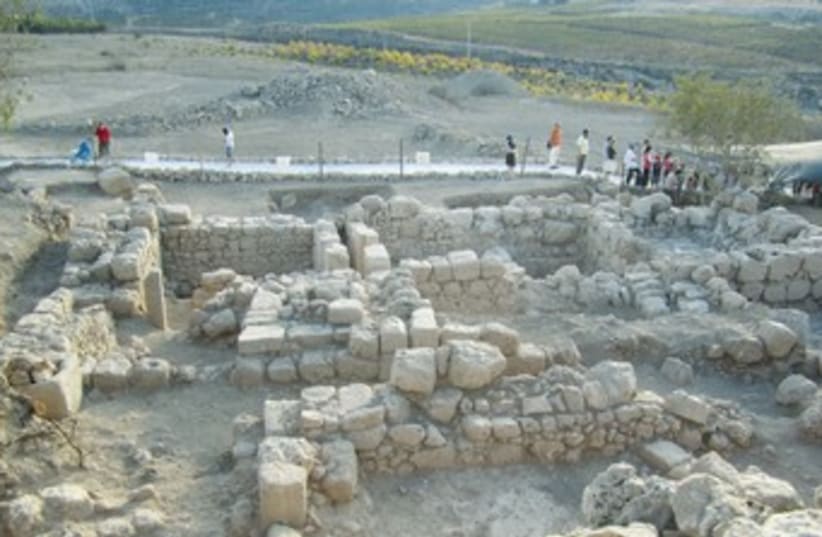Emek Shaveh is demanding that the site of Tel Shiloh, where archaeologists believe a stone foundation for the Ark of the Covenant is located, be managed by the Civil Administration. The site is now contained within the boundaries of the West Bank community of Shiloh.
Emek Shaveh is working with Yesh Din: Volunteers for Human Rights.
In recent years, Israeli authorities and community members have been investing considerable efforts to turn Tel Shiloh archaeological site into a major tourist attraction. Visitors can stand on the spot where it is believed the Ark once stood. The Ark itself was taken into the battle described in the Book of Samuel and captured by the Philistines.
In addition to the Ark, at the location one can see remains of Byzantine churches, as well as mosques that were built at the site during the Islamic period.
In 1996, the Civil Administration transferred the site to the management of the Mateh Binyamin Regional Council. In 2013, the regional council handed over management of the site to a private settlers’ NGO called the “Mishkan Shiloh” association.
“The visitors’ experience in Tel Shiloh is primarily based on the biblical story and establishes without any archaeological evidence that the Tabernacle and ancient Jewish community were located here,” Emek Shaveh said in a release.
The High Court of Justice will hear Emek Shaveh’s and Yesh Din’s petition against the transfer of authority for the site’s management to the Mateh Binyamin Regional Council and then to the Mishkan Shiloh Association.
Last month, Emek Shaveh and Yesh Din presented a different but related case to the High Court asking that the State of Israel not conceal the names of archaeologists working in the West Bank, which would be in line with accepted academic standards in Israel and around the world whereby information about archaeological research and discoveries are transparent and accessible to the public. The names of the archaeologists are currently concealed for fear that they would be subject to an academic boycott.
The High Court ruled against Emek Shaveh and Yesh Din and in favor of continuing to conceal the names of the archeologists.
